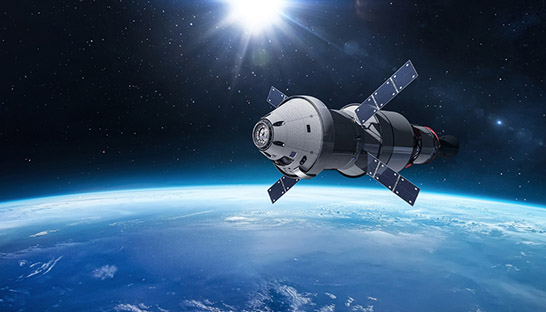
Earth’s dwindling resources have been over-exploited for decades, and as the resulting supply chain disruption and price inflation sees the world’s leading economies struggle for growth, many businesses and governments are looking to the skies for new opportunities. A study from the World Economic Forum and McKinsey & Company subsequently suggests that the final frontier is set to witness a $1.8 trillion gold-rush in the next decade.
With an entirely different environment – and lack of regulations – outside the Earth’s atmosphere, the potential for space innovation is said to be ‘immense’. Many entities are drawn to the burgeoning space market, by the promises of seemingly outlandish projects, from pharmaceutical companies establishing a lab on a space station to study cell growth, to semiconductor companies manufacturing chips in extra-terrestrial factories.
This has driven an all new space race in the last decade, with previous research having shown that state-actors in particular are ramping up investment in the ‘space sector’. One study in 2022 found that government spending there had already reached a record $92 billion, while another paper found that the UK is among the leading destinations for space investment – boding well for the national economy in the long-term.
Now, a study from McKinsey & Company has further reinforced the idea that the space sector could be about to push the UK economy into a new boom. Produced in collaboration with the World Economic Forum, the report speculated that the global space economy could expand from $630 billion in 2023 to $1.8 trillion by 2035 – thanks in large part to a rising number of industry players now also following governments into the sector.
In particular, private sector operators are answering demand for a number of key trends which will help bolster the future of the space market. These include greater satellite connectivity, mobile positioning and navigation services, and the provision of insights powered by AI and machine learning.
The innovations meeting this demand are already delivering greater benefits to a more diverse set of stakeholders than ever before, according to the researchers. These stakeholders include companies in industries ranging from food and beverage to transportation. And while the space economy’s value is currently largely derived from those ‘backbone’ services, their advancement means that those new stakeholders will soon be producing more ‘reach’ services that will be worth even more.
Currently, backbone income accounts for $330 billion of the space economy – compared to $300 billion in reach. But by 2035, that will have inverted, with backbone accounting for $755 billion, and reach accounting for more than $1 trillion. This means that the space economy’s financial impacts will also be growing at a faster-than-average rate – with reach services enjoying 11% CAGR over the next decade, compared to global nominal GDP which will see 9% CAGR.
Speaking on the findings, McKinsey’s Global Managing Partner Bob Sternfels said, “I’m struck by how much this boom is about so much more than rockets – and by how it’s delivering greater benefits to a more diverse set of stakeholders than ever before. In agriculture, farmers use satellite imagery to track crop growth and predict yields, making better decisions about when to plant and harvest. In transportation, satellite-based navigation systems are improving the efficiency of shipping and logistics operations. And in healthcare and education, satellite-based communications connect rural areas with urban hubs, improving access for people in remote areas.”






